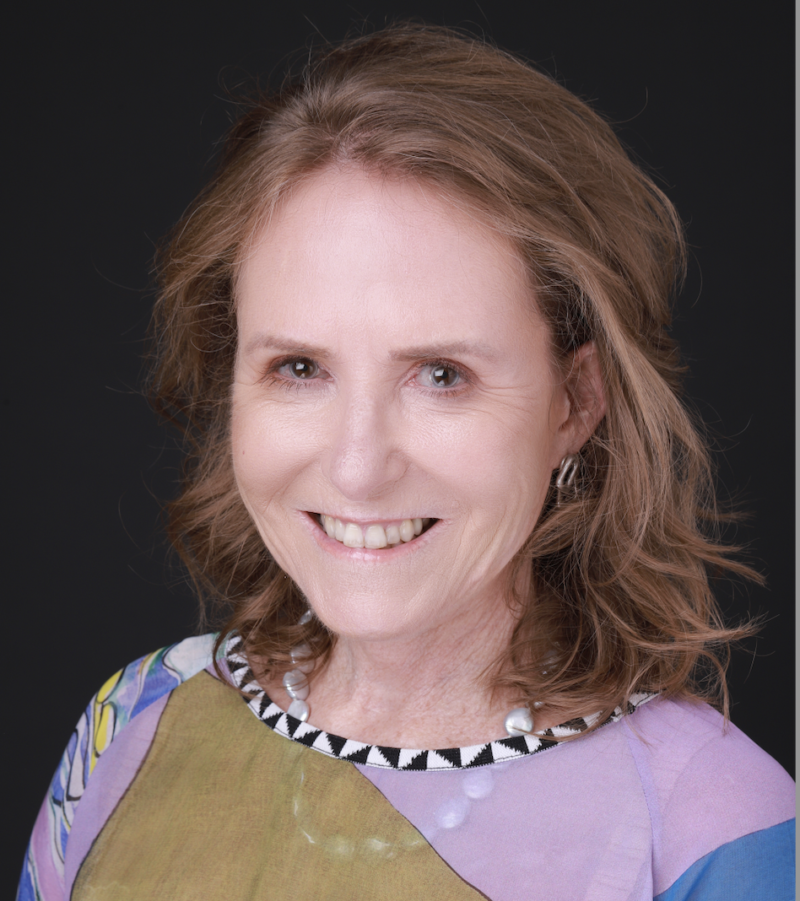Janice MacLennan is CEO of St Clair life sciences brand strategy consultancy, and creator of the NMBLR app.
Can you tell us a little about your background and the company?
I was born in Scotland but my family moved to Africa when I was very young. I graduated as a pharmacist in South Africa, then one day someone came into the pharmacy and shared their stories about their travels. I was inspired by where they had been and what they had seen and experienced. I have always been very ambitious, and I felt there was so much more I could do and so much more I wanted to see, so I set off to travel the world. Six weeks later I had vacated my apartment, sold what I could and was on a plane to London. My qualifications didn’t translate to the UK system, so I applied for a job in sales at pharma giant Beecham – turning up for the interview in my casual ‘travelling’ clothes. I must have said something right though because I was given a job on the spot and quickly rose through the ranks, undertaking an MBA, part-time, during my time there.
I worked at Beecham for three years and then moved to a private marketing consultancy: Marketing Improvements. Whilst working on a client strategy project, the client – David Roe – said to me “you should be doing this for yourself”. I handed in my notice the next day with the aim of setting up and working for myself. I founded St Clair Consultancy in 1991 and have never looked back. In March 2022, I am launching NMBLR the first digital solution that allows global pharmaceutical teams to bring expertise and ideas together to make better strategic choices quickly
How did the idea come to you for the company?
Having worked in the pharmaceutical and life sciences industries for more than 30 years I have experienced first hand strategies which don’t help the local teams succeed in getting the right treatment to the right patients at the right time. A contributing factor can be a strategy that is not cohesive and/or to which regional and local teams are not aligned. NMBLR, two years in the making, at a cost of more than £1million is designed to address these and other weaknesses impacting success.
How did you achieve awareness?
Clients have always come to me through word of mouth recommendations, which is why St Clair has been so successful. With NMBLR we are going to be leveraging the relationships we have alongside social media channels to launch to the pharma market and will then be opening up to all business markets and industries
How have you been able to gain funding and grow?
Through St Clair I built up the finance to be able to fund NMBLR. The product has now been put out to market and is attracting independent investment.
What are the key successes?
Finding an outstanding team of developers. I asked the Institute of Directors to provide names of leading London based digital agencies. They came back with a list of about 50 companies. I reviewed their work and narrowed down the list to two. I approached both and only one responded to my enquiry – NEVERBLAND. They have proven to be fabulous partners.
Setting up an advisory board. This is a group of people whose opinion I have high regard for. They’ve acted as a sounding board from the outset. I wouldn’t have achieved the quality of product that I have without their input and advice.
Consulting people, from over 30 companies, who either lead strategy teams or are a strategy team member. I took the prototypes to them, explained how it would work, and received candid feedback. Their perspective resulted in an end product that I am incredibly proud of but that would not exist if I had not listened and pivoted along the way.
We have a very strong brand. The brand name, the logo and the look and feel of the digital platform, our marketing site – all set NMBLR apart and establish it as a premium brand.
What were/are the challenges and how have you overcome these?
Managing the complexity of the solution.
The changes in devices, apps, and access to data has caused design to evolve in some pretty exciting ways. Less than two years ago the thought of designing for laptop, phone, and iPad simultaneously was rare, now it’s table stakes. This introduces complexity.
Further, building strategy, with all the people involved and all the factors that affect it, is complex. We were conscious that the digital solution we built needed to allow teams to review and adjust their strategy over time. A solution that supports the idea that strategy is not about looking for the best solution, but looking for a creative solution that you have confidence in and fits best to your priorities. Once the rubber meets the road and teams begin to execute on the strategy, unforeseen circumstances will occur. You will inevitably have to change your course and adapt. It needed to allow for that adaptation of strategy.
Investing heavily in UX/UI design from the outset has been the way we solved this.
Creating advocacy throughout all levels of management, and eventually all levels of the operation.
Without conviction throughout the entire business, digital transformation is going to be lengthy and painful. To help with this, I invested in becoming AQai certification which has equipped me with adaptability insights and tools to help individuals, teams and organisations adapt quickly to this new way of building strategy.
What are your plans now/for the future?
Our immediate plan is to build a team that can drive and support the adoption of NMBLR across the pharmaceutical industry. Hiring great talent is going to be necessary for this business to thrive, both financially and culturally. Research shows that men will apply for a job when they meet 60% of the qualifications. In contrast, women only apply if they meet 100% of the requirements. This isn’t due to a lack of confidence but rather a desire to avoid wasting anyone’s time. Women assume the qualifications are actually required to do the job, rather than a wishlist. Our recruitment process needs to avoid this gender bias.
As soon as we have a team in place, the intention is to adapt NMBLR for use outside of the pharmaceutical industry. I have already identified a number of people with the relevant expertise who can work with us to adapt and tailor NMBLR to support strategy development across other industry verticals.
What would you like to share with others to encourage them to start their own entrepreneurship journey?
For many, a typical nine-to-five job is a satisfying way of earning a living and you know what you are going to be earning and what is expected of you. You are typically getting up at the same time everyday, driving to and from an office and doing the same job day after day.
Becoming an entrepreneur is quite different, it means
- There are no limits placed on what you can earn. Instead, your income is determined by factors like the value of your business idea to others, how well you market, how skillful you are at managing a business and how hard you work. I would argue your destiny is in your control but there is a lot of risk.
- You have the luxury of creating a flexible work schedule. As an entrepreneur you are your own boss. You can embrace odd work hours.
- You can pursue business ideas that you are passionate about. As someone with great ideas, it can be challenging to convince others to invest in your plans or see the value of your goals. As an entrepreneur, you can marry your creativity with opportunity, fuelling a great business idea with passion and determination to make it a reality.
- The only person you have to obtain permission to do something is yourself, which allows you to create your own opportunities. Though you will face many challenges and experience failure, being an entrepreneur allows you to blaze your own trail and learn from your mistakes on your terms.
Can you share your top tips for entrepreneurial success?
Follow your intrinsic rather than extrinsic motivations. Focus on satisfying your own interests and desires rather than on getting rich, having power, and fulfilling someone else’s dreams will likely lead to more success, as well as satisfaction. Steve Jobs summarised his intrinsic motivation in 2005 at Stanford in a talk titled “How to Live Before You Die.” He said, “Your work is going to fill a large part of your life, and the only way to be truly satisfied is to do what you believe is great work. And the only way to do great work is to love what you do.”
Take advantage of the opportunity for your own personal growth. To be a successful entrepreneur you can never stand still. You need to enjoy the journey as much as the destination. A thirst for knowledge will help you with your business. Invest in your own learning.
If you want to achieve your goals, keep focused on your goal whilst helping others achieve theirs. Be generous. Great entrepreneurs keep their eyes open for other businesses in a related space that can complement theirs. Or people with a different skill set that can strengthen the offer.
Fail fast, learn fast and keep moving forward. Failing fast is premised on getting early feedback that can either validate or invalidate an idea. It doesn’t tell you what problem to solve, but it can help you assess the best way to solve it. A very common area of frustration for entrepreneurs is the feeling that you are not moving the business forward fast enough. make sure you are making one decision a day, however big or small, that helps you move towards your goals.
Who are the 5 people who inspire you the most and why?
Nelson Mandela: because he knew that a single person could be a catalyst for change and he wasn’t afraid to be that catalyst.
Elon Musk: because he self taught himself and revolutionised the world. He is doing those things nobody even dares to think.
Jonathan Van-Tam: for his use of metaphors and similes involving trains, planes and penalty shootouts to explain coronavirus and the pandemic to the public
Steve Jobs: for his obsession with excellence and that small visions don’t move mountains, big dreams do.
Michelle Obama: because she is a role model for women and an advocate for health families, higher education and international adolescent girls education.
What are your favourite inspirational /motivational quotes?
“There is no passion to be found playing small – in settling for a life that is less than the one you are capable of living.”
Nelson Mandela
“You just can’t let life happen to you, you have to make life happen.”
Idowu Koyenikan, Wealth for All: Living a Life of Success at the Edge of Your Ability
“I am experienced enough to do this. I am knowledgeable enough to do this. I am prepared enough to do this. I am mature enough to do this. I am brave enough to do this.”
Alexandria Ocasio-Cortez
What are your Instagram, Facebook and LinkedIn social handles and also website links so our readers can connect with you?
https://www.linkedin.com/in/janicemaclennan
TSF Reporters
The Successful Founder Magazine is the go to feature-rich magazine for founders on all stages of their entrepreneurship journey .
- TSF Reporters#molongui-disabled-link
- TSF Reporters#molongui-disabled-link
- TSF Reporters#molongui-disabled-link
- TSF Reporters#molongui-disabled-link






